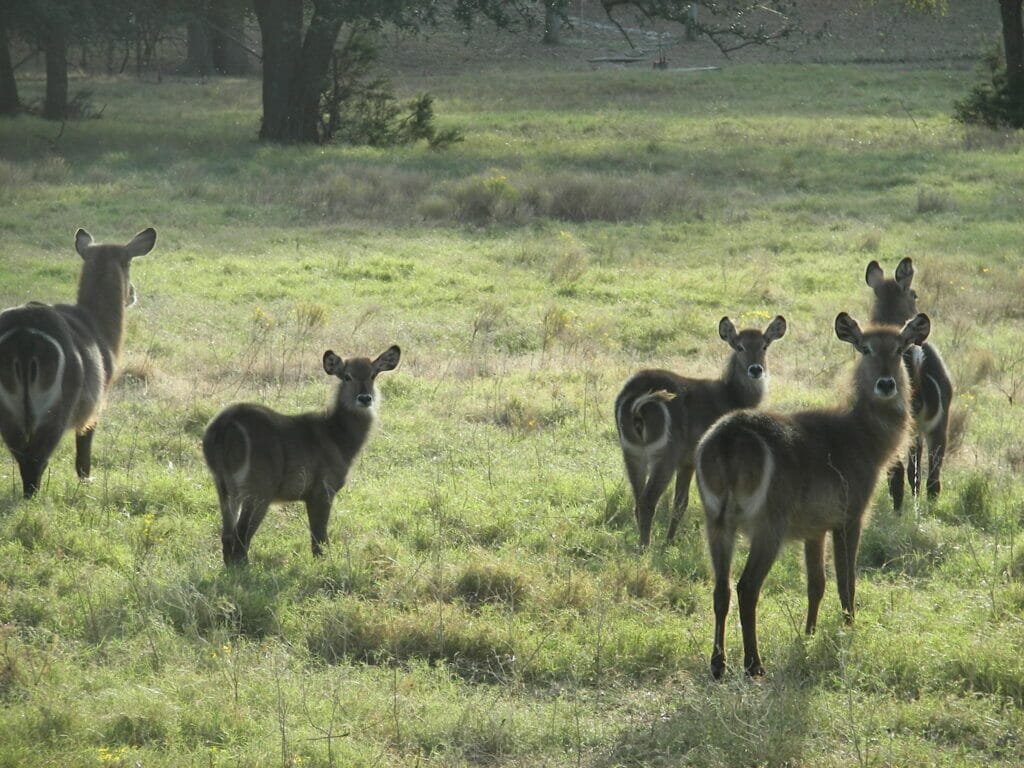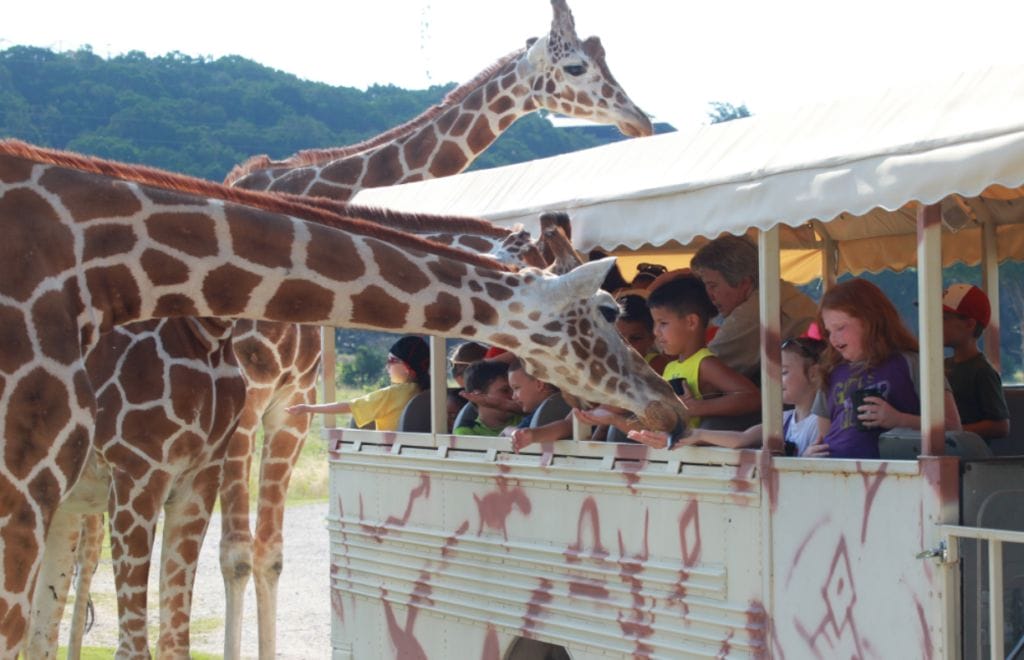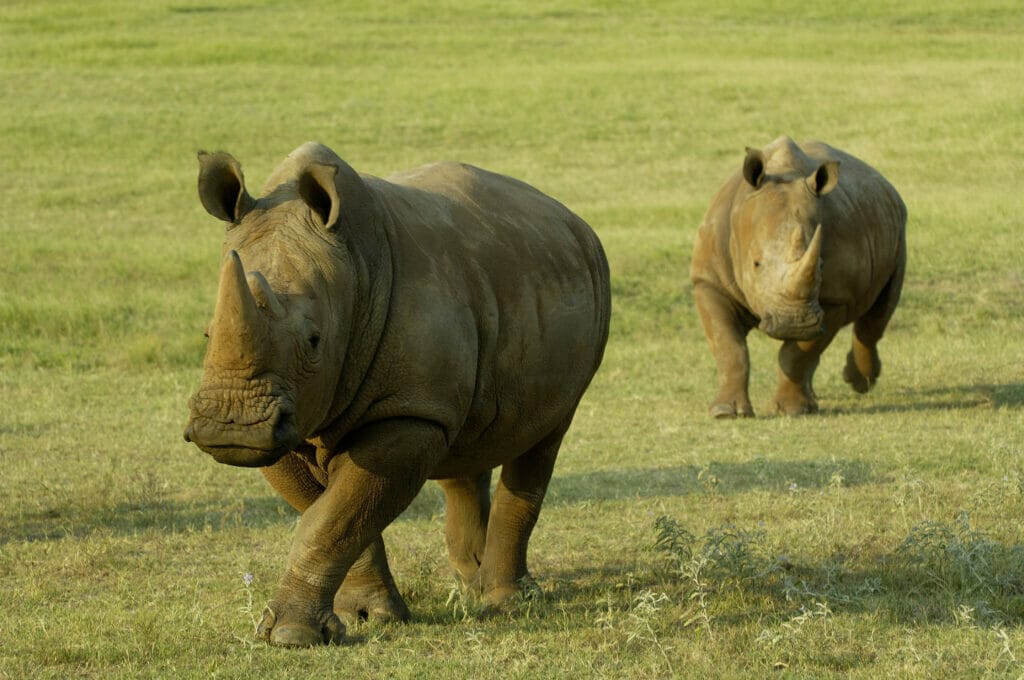At Fossil Rim, we get all kinds of questions about our facility. For example, “Why can’t I hand feed all of the animals?” and “What’s wrong with petting them?” We understand why some of our policies may not seem to make a lot of sense. After all, what’s wrong with petting an animal that approaches you? In short, our rules actually have a lot less to do with our guests, and nearly everything to do with our mission of conservation.
Domesticated vs. Wild
Before you can understand how a place like Fossil Rim works, it’s important to learn the difference between wild and domesticated animals, as well as animals that live under human care. All domesticated animals once started as wild, meaning that they were self-sufficient and either avoided or generally ignored humans. Eventually, humans began to breed animals to their advantage, for things like food, clothing and work. Not every animal is fit for domestication, which is why there are so few truly domestic species. Instead, the majority of today’s animals are fully wild, or live semi-wild lives under human care. At Fossil Rim, our species fall into this second category.

When an animal lives under human care, it means that their lifestyle allows the majority of their natural instincts to be preserved through their environment. Additionally, they still benefit from veterinary interventions when necessary, as well as things like additional enrichment and supplementary food. Raising animals this way has a lot of benefits, especially when it comes to endangered species. Keeping our animals as wild as possible is critical to our mission as we work to increase genetic diversity, build assurance populations, and occasionally even offer up our own species for release.
Preserving the Wild
So, if preserving natural instincts is so important, why do zoos and places like Fossil Rim allow guests in the first place? Although these animals are critical to the survival of wild populations, we also firmly believe that another way to help species around the world is to educate people about their value. By allowing guests to visit and see these incredible species up close and personal, they can gain a new perspective on issues that may seem far away from them. Not only that, but the revenue from guests directly contributes to conservation breeding. Consequently, this makes guests a critical part of our mission.

That being said, we do still encourage many of our animals to approach vehicles to eat, so why don’t we let you pet or hand feed them? These animals still spend their day roaming freely within our property, encountering different species and plants, both native and exotic. Basically, their understanding of guests is as a food source, and not a friend. Moreover, petting and spending time with these animals as we would a dog or cat could impact their ability to relate to their herd, and even be dangerous to both parties.
For the Future
Because of the way we encourage guests to treat our animals, we’re protecting those animal’s instincts. Their genes are still being added to the Fossil Rim pool, which in turn is added to pools across America, and sometimes across the world. Additionally, should truly wild populations plummet, there will always be animals in captivity who can contribute to new births.

Keeping animals in a protected environment also allows research to be conducted on things like herd dynamics, diseases and more without having to travel to a different country. This information can then be applied to international populations where it can be a huge help.
It’s All About Respect
While it’s tempting to pet a cheetah or spend time with a rhino, the best way to show your passion for animals is to treat them with respect. For example, at Fossil Rim you should view animals from a distance, feeding them only from vehicles or in designated areas. Additionally, it’s important to listen to expert animal care staff about what is safe and what’s not. We offer tours because we love to give people opportunities to view and learn about these animals in a safe place. More importantly, however, we do what we do so that people can leave with a better understanding of what conservation is and why it’s so important.

